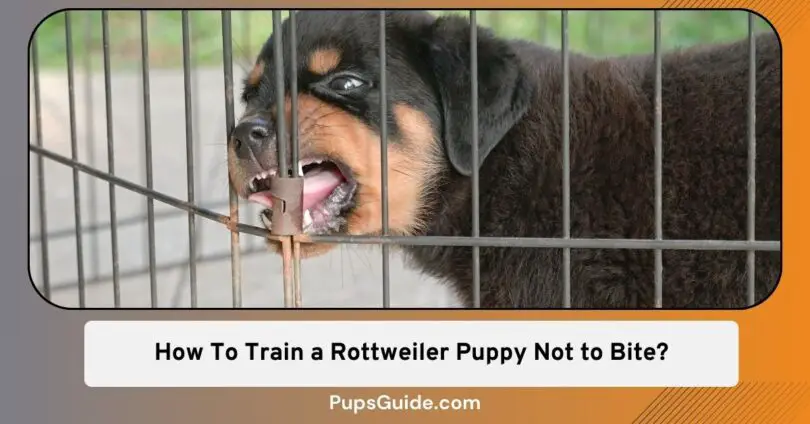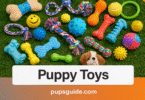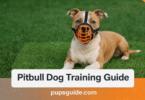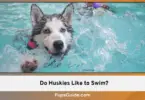A Rottweiler puppy, cute as a button but sinking those tiny teeth in with a vengeance. It’s a serious issue, and I’ve got some insights to share, having raised Rottweilers for quite some time.
Now, before you think about redirecting that feisty behavior, hold your horses – that might not be the solution. Let’s dive into the nitty-gritty of how to train a Rottweiler puppy not to bite.
The Rottweiler Biting: A Vicious Start
So, here’s the scoop. Someone reached out to me about their Rottweiler pup, a real ankle biter, and it’s not the first time I’ve heard this tale of teething terror. Rottweiler puppies, even at a tender age, can be a handful.
My first Rottweiler, Mars, was a real firecracker at eight weeks old. Vicious, mean, and downright scary.
Sure, it’s tempting to brush off those “cute” behaviors, but let me tell you, they won’t magically disappear as your pup grows. Ignoring them now could lead to a full-grown Rottweiler with serious behavioral issues.
That’s why you need an early intervention.
Early Intervention: The Key to a Well-Behaved Rottweiler
Many folks buy into the misconception that correcting a young pup is a no-no. False! You’ve got to nip those bad behaviors in the bud. Imagine this – your Rottweiler will grow to be 80, 90, 100, or even 120 pounds.
If you let those unruly habits slide because your pup is “just a baby,” you’re setting yourself up for a world of trouble. Correcting a young puppy is not only possible but crucial.
Here’s how to do it.
The Correction Conundrum: A Gentle Firmness
When your Rottweiler pup decides your hand is a chew toy, redirecting won’t cut it. No treats or toys will magically make the biting stop.
- You need to correct that behavior with a resounding “no.”
- Try grabbing the scruff of their neck for a gentle squeeze – not to hurt, but to communicate that biting isn’t okay.
- Another nifty trick is making a “bunker” out of a towel. A loud “no” accompanied by a well-timed gentle whack with the bunker can work wonders.
The Mistake of Misdirection: Why It Won’t Work?
Some trainers suggest redirecting a Rottweiler pup’s biting tendencies with treats or toys. Newsflash: it rarely works. Rottweilers are a strong, dominant breed, and they need clear boundaries from the get-go.
Misdirecting the behavior only confuses them and lets the problem persist. Don’t fall into that trap.
Rottweiler Biting: Not Just a Breed Thing
Now, let’s be clear – it’s not just Rottweilers. All dogs need guidance and correction, and it’s crucial to understand that early intervention is the key. This week, I’ve encountered several cases of Rottweiler puppies with the same biting issue.
It’s a common challenge, and it’s not exclusive to this breed. The takeaway here is that addressing behavioral problems early is universal doggy wisdom.
The Power of Correction: Strengthening the Bond
You might be wondering if correction harms your puppy. The answer is no.
Correcting a Rottweiler pup doesn’t hurt their feelings, damage your relationship, or make them grow up messed up. Quite the opposite, actually. It sets clear boundaries, establishes your role as the leader, and strengthens your bond. Dogs, like kids, thrive in an environment with structure and rules.
Why Does A Rottweiler Puppy Bite And How To Identify The Reasons?
Knowing why a pup bites helps you, the owner, to get into the process of curbing the reasons. But for that, you’ll have to first know them.
1. The Teething: A Pup’s Right of Passage
Just like human babies, Rottweiler puppies experience the discomfort of teething, and chewing becomes their preferred pastime.
Those adorable little biters are exploring the world with their mouths, and your hands or feet might seem like the perfect chew toys. It’s not personal; it’s just a pup’s way of soothing those sore gums.
2. Exploring the Boundaries: A Natural Instinct Unleashed
Beyond teething, Rottweiler puppies are natural explorers. Imagine being a curious fluff ball in a world filled with intriguing scents, textures, and, of course, your fingers.
Biting is their way of testing boundaries and figuring out what’s acceptable in their canine code of conduct.
3. The Playful Pounce: Socializing Through Teeth
They go through playful phases, and they often involve a bit of playful nibbling. Puppies use their mouths to communicate and engage in social play.
It’s their way of bonding with you and other dogs. So, if your Rottweiler pup is using your hand as a chew toy during playtime, consider it a puppy-approved invitation to join the fun.
4. Communication through Chomps: Expressing Discomfort
Sometimes, those little nips are more than just play. Dogs, much like humans, express discomfort or pain through various cues.
A Rottweiler puppy biting with more intensity than usual could be a signal that something is bothering it. Check for any signs of injury, discomfort, or potential health issues that might be causing them to express their unease through their tiny, yet impactful, bites.
5. The Overtired Overdrive: Biting as a Sign of Fatigue
Ever experienced the overdrive of an overtired toddler? Well, Rottweiler puppies have their version of this phenomenon. When these furballs are exhausted, their energy doesn’t dissipate – it intensifies.
Biting can be a sign that your pup needs some downtime. Think of it as a canine way of saying, “Hey, I’ve had enough excitement for now.”
You can also read: Stopping Husky from Biting? – Here’s How to do
How To Train a Rottweiler Puppy Not to Bite? – Conclusion
And there you have it! Rottweiler puppy biting might seem like a formidable challenge, but with a bit of understanding and early intervention, you can decode the reasons behind those chewy escapades. Teething, exploration, playfulness, communication, fatigue – these are the puzzle pieces that form the canine cipher.
Take a moment to understand your Rottweiler pup. Train them, correct the bad, reward the good, and do it with meaning. Your puppy is not a delicate flower; they’re a future powerhouse that needs guidance.
So, go ahead, take care of your puppies, teach them, and build a strong foundation for a lifelong friendship.








Leave a Comment